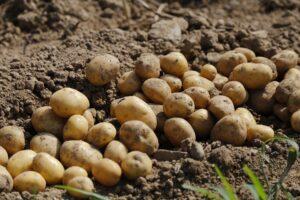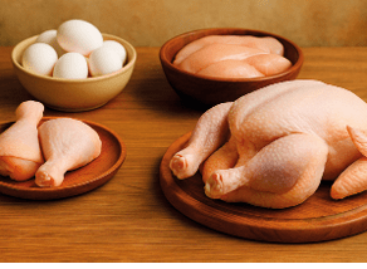Good news about non-ÖKO seeds and tubers
Regulation 889/2008/EC of the Commission of the European Union permits the use of seed and potato tubers from non-organic farming in organic farming, if the producers cannot obtain propagating material produced by organic methods. It refers the authorization procedure to the competence of the Member States. To this end, it requires the member states to create and continuously operate a computerized database for the registration of the varieties from which seed and potato tubers from organic farming are certified to be available in the country.

(Photo: Pixabay)
At the supplier’s request, only certified organic seed and potato seed tuber lots can be included in the database, which fulfill the qualification conditions for seeds and seed tubers in all respects. During organic farming, permission to use seeds or potato tubers from non-organic farming can only be issued if no variety of the species desired by the user is listed in the database, or if the variety the user wishes to purchase is not listed in the register and the user can prove that none of the registered alternatives within the same species are suitable.
The assessment of license applications and the issuance of licenses is carried out by the organization responsible for the organic certification of the producer
Licensing takes place in accordance with Commission Regulation 889/2008/EC, taking into account the items in the database at the given time. All varieties that are not included in the database at the time of the license issuance must be considered unavailable for evaluation. The starting date for issuing permits varies depending on the sowing time and is the same as the deadlines listed in Annex No. 5 of FVM Decree 40/2004 (IV.7). In order to include the items in the database, the data must be sent to the Seed Inspection Department of Nébih (1024 Budapest, Keleti Károly u. 24. Fax: 06-1/336-9096) using the pre-requested or downloadable registration form.
Information required for registration
• Name, address, telephone number/fax number, e-mail address, contact person’s name and contact information of the shipping company.
• Hungarian and scientific species name.
• Name of the organization performing ecological control: Name of the certifying organization performing the ecological control of the seed producer.
• Breed name: The official breed name in the National Breed Register or the EU breed list.
• Metal lock number of the seed batch: Both for batches certified in Hungary and from abroad.
• Delivery area: Only to be filled in if it is not the territory of Hungary, but a narrower or wider area. The area where the supplier (distributor) can deliver the seed or seed tuber to the producer at the time required for use.
• Place of certification of the variety (country/region): The country or region where the variety was tested and accepted for use in public cultivation in the list of varieties of agricultural plant species and vegetable species. (It does NOT need to be filled in for breeds included in the National Breed Register.)
• Start of delivery: The date from which the seed batch is available and already has a positive closed qualification.
• Inspection organization: The name of the organization responsible for the inspection of the organic management of the seed producer
• Other information: This is a free-to-fill section in which other information about the item that the supplier deems necessary can be provided. (For example: degree of seed propagation, lot weight, selling price, etc.)
Nébih
Related news
EU poultry meat rules are changing: the 12-week limit for “free-range” labeling is being relaxed during a pandemic
🎧 Hallgasd a cikket: Lejátszás Szünet Folytatás Leállítás Nyelv: Auto…
Read more >Related news
How does the forint exchange rate affect consumer prices?
🎧 Hallgasd a cikket: Lejátszás Szünet Folytatás Leállítás Nyelv: Auto…
Read more >HELL CITY has arrived, led by Michele Morrone
🎧 Hallgasd a cikket: Lejátszás Szünet Folytatás Leállítás Nyelv: Auto…
Read more >








